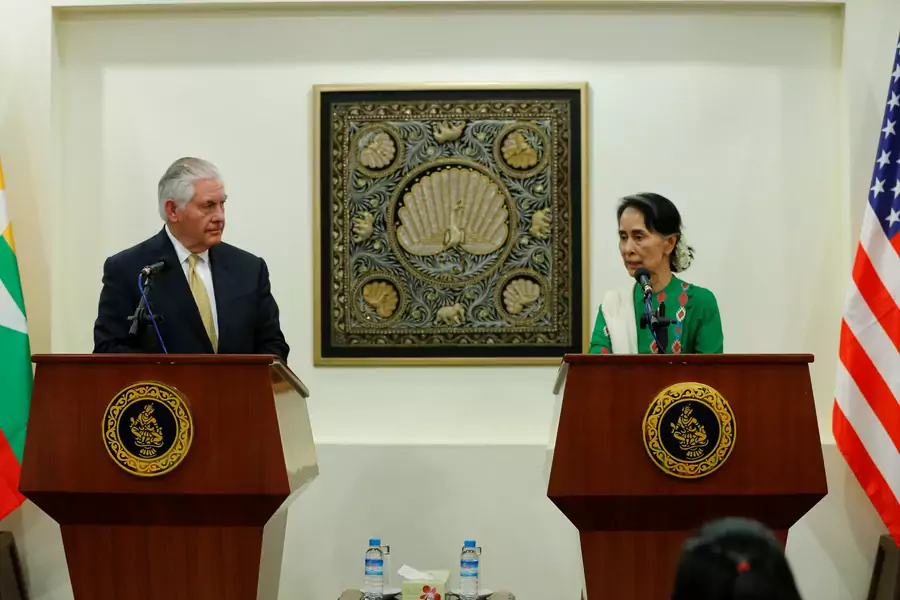Tillerson’s Visit to Naypyidaw: Some Quick Thoughts

During his meeting today (Myanmar time) with senior Myanmar leaders including the head of the military and de factor civilian leader Aung San Suu Kyi, U.S. Secretary of State Rex Tillerson struck some important themes. Tillerson declared that there were “credible reports of widespread atrocities committed by Myanmar’s security forces and by vigilantes who were unrestrained by the security forces during the recent violence in Rakhine State.” He did not try to downplay the credibility of such reports. He also called upon the military and Myanmar’s civilian leaders to allow investigators full access to Rakhine State, including northern Rakhine State. He did not call the violence “ethnic cleansing,” but left open the possibility that Washington would indeed label it that.
Tillerson also suggested that the crisis in Rakhine State should be met with targeted individual U.S. sanctions, probably on military leaders involved in overseeing atrocities. As I have noted, the threat of targeted sanctions would have been a more effective deterrent in October 2016, before this latest round of violence began in August 2017. Such a threat against the Myanmar military’s top leadership might indeed have served the purpose as a deterrent. But still, Tillerson is right to consider targeted sanctions now. He did not, however, give any timetable for targeted sanctions.
More on:
The visit also included several important missed opportunities. First, the joint appearance allowed Aung San Suu Kyi to (again) basically say nothing about the severe rights abuses in Rakhine State. Instead, she once again deferred, telling reporters in a press conference, “It’s important to bring peace and stability to this country and that can only be done on the basis of rule of law and everybody should understand that the role of theirs is to protect peace and stability, not to punish people.” It was yet another missed chance for Suu Kyi to make any kind of tough public statement on the crisis and the role of the military in it. Other top members of the NLD have, in recent weeks, offered similar stonewalling about the crisis in Rakhine State, publicly supporting the military’s theories that no abuses have gone on there.
Suu Kyi went on to praise Tillerson for “keeping an open mind,” a phrase that seems to appear like the Myanmar leader was praising him for not condemning the Myanmar military more harshly. The New York Times further reported that:
At the news conference on Wednesday, Ms. Aung San Suu Kyi defended her statements [in which she has said little about Rakhine State], saying, ‘I don’t know why people say I’ve been silent’ about the Rohingya, and suggesting that perhaps what she has said was not ‘interesting enough’ or ‘incendiary.’
In addition, Tillerson used the visit to call for what Reuters called a “credible investigation” of human rights abuses in Rakhine State. This formulation suggests that there has not already been a credible investigation, which is hardly the case—and it potentially gives Naypyidaw the chance to buy more time.
Tillerson did not specifically call for a UN-led, fully independent investigation into the situation in Rakhine. And in reality, multiple rights organizations, as well as the United Nations, have completed extensive investigations and concluded that severe rights abuses, even ethnic cleansing, are taking place in Rakhine State. (In response, on Monday the Myanmar military put out its own “investigation” into the situation in Rakhine State and basically absolved itself of all blame.)
More on:
 Online Store
Online Store